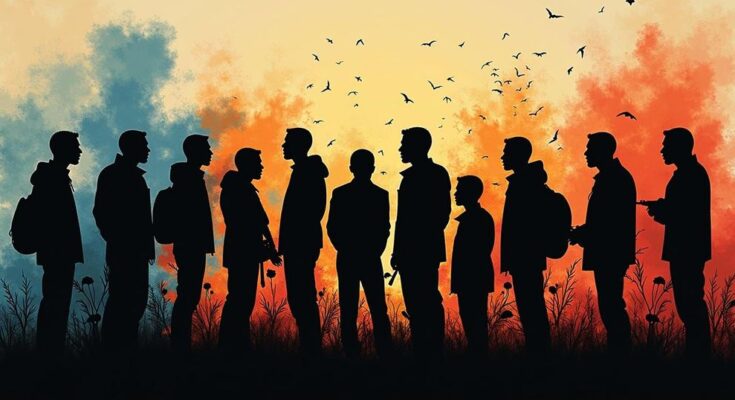President Nayib Bukele of El Salvador defended his government’s anti-gang campaign at the UN General Assembly, claiming it has significantly restored public safety and transformed the nation from the murder capital to the safest country in the Western Hemisphere. He emphasized the mass detentions of alleged gang members under a state of emergency, while also facing criticism from human rights groups about the impact of these measures on innocent individuals and prison conditions. Bukele asserted that political and personal freedoms are respected in El Salvador despite ongoing criticism.
At the United Nations General Assembly, President Nayib Bukele of El Salvador presented a vigorous defense of his administration’s actions against gang violence, noting the significant transformations the country has undergone under his leadership. He declared, “In the last five years, El Salvador was reborn; we returned the streets of our country to our people,” emphasizing the restoration of public safety and normalcy that he attributes to his anti-gang measures. In March 2022, President Bukele implemented a state of emergency which permitted mass arrests of individuals suspected of gang association, resulting in the detention of approximately 82,000 alleged gang members. Bukele claimed, “Some say that we have imprisoned thousands, but the reality is that we have freed millions. Now it’s the good people who live freely, without fear, with their freedoms and human rights fully respected.” He touted that El Salvador, formerly deemed the murder capital of the world, has now transformed into the safest country in the Western Hemisphere, declaring this achievement as the country’s most formidable challenge yet. Despite Bukele’s claims, various human rights organizations have challenged his methods, arguing that his regime has unjustly imprisoned numerous innocent individuals and condemned the conditions within the prisons. Bukele contrasted this difficult past, stating, “We returned the streets of our country to our people and established a flourishing tourism industry… We gave thousands of Salvadorans who fled from war and poverty a country to return to,” highlighting the extent of societal change that he believes has been accomplished. Furthermore, President Bukele asserted that the basic rights of political expression and personal freedoms are preserved in El Salvador, emphasizing, “In El Salvador, we don’t imprison our opposition, we don’t censor opinions… your freedom of expression, as well as your private property, will always be protected.”
The remarks made by President Nayib Bukele during the UN General Assembly underline his administration’s approach to combatting gang violence in El Salvador, a country that has long struggled with high levels of crime, particularly from gang-related activities. Bukele’s administration has enacted aggressive policies aimed at dismantling gang influence, particularly through a state of emergency that has facilitated the detainment of thousands of individuals. While these measures have garnered some support due to perceived improvements in safety, they have simultaneously attracted criticism from human rights advocates concerned about potential abuses and the treatment of detainees. Bukele’s promise of political freedoms further complicates the narrative, as the political climate in the country remains contentious. Understanding the socio-political landscape of El Salvador is imperative for comprehending the complexities surrounding Bukele’s policies and their implications for Salvadoran society.
In summary, President Nayib Bukele’s presentation at the UN reflects his administration’s assertive stance against gang violence in El Salvador, presenting a narrative of national revival and increased public safety. While he cites the reduction of crime and the protection of personal freedoms as indications of success, significant opposition exists from human rights organizations that question the validity and humanity of his methods. As El Salvador continues to navigate its complex socio-political challenges, Bukele’s policies and their long-term effects will remain a focal point for both supporters and critics.
Original Source: ticotimes.net




